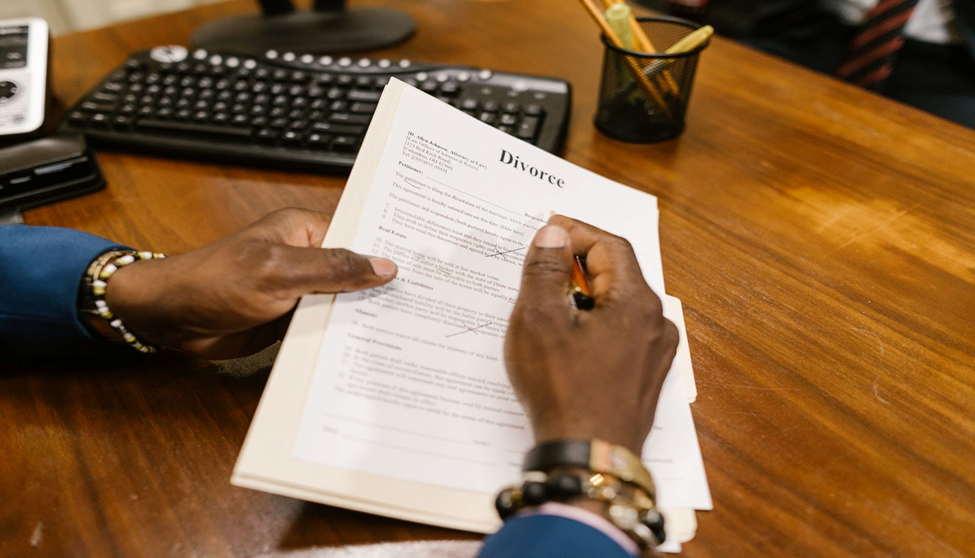
Key Takeaways:
- Insight into the multifaceted nature of divorce.
- Understanding the legal processes involved in marital dissolution.
- Coping mechanisms to address the psychological effects of divorce.
- Importance of considering financial implications during divorce.
- The role of mediation and other resolution methods in divorce proceedings.
Table of Contents:
- The Different Facets of Divorce
- Legal Aspects of Ending a Marriage
- Emotional Impact and Coping Mechanisms
- Financial Considerations in Divorce
- The Role of Mediation in Divorce
- Helping Children Navigate Parental Separation
- Conclusion: Moving Forward After Divorce
The Different Facets of Divorce
Divorce is not merely a single action but a series of events that unfold over time. Every layer of its process can dramatically influence the lives of those involved. From personal well-being to legal efforts and social dynamics, dissolving a marriage spans far beyond the courtroom. People facing these circumstances often experience intense emotions akin to the stages of grief, and for many, life’s roadmap alters drastically. Having an experienced expert like a Tampa divorce lawyer by your side may help you navigate the complexity of divorce law and provide you peace of mind.
Legal Aspects of Ending a Marriage
The legal side of divorce encompasses a broad spectrum of regulations and provisions. The process can be daunting, from the initial filing to the final decrees. Variances in state laws, such as Florida’s requirement for an equitable distribution of assets, can complicate the division process. Understanding your rights and responsibilities is essential. An informed approach to child custody, spousal support, and property division is necessary for a fair agreement. Staying updated with the evolving legal landscape of divorce is also critical, as changes can significantly influence case outcomes.
Emotional Impact and Coping Mechanisms
The emotional spiral caused by divorce can be tumultuous. The sense of loss, betrayal, or relief can trigger a cascade of psychological responses. Many find solace in therapy or support groups, discussing their struggles with individuals in similar situations. Professional guidance from therapists specializing in divorce can provide coping strategies to manage depression, anxiety, and stress. Acceptance and healing are journeys that require time and patience. Embracing change, establishing new routines, and self-discovery often emerge as integral pieces in the puzzle of emotional recovery post-divorce.
Financial Considerations in Divorce
One of the most contentious aspects of many divorces is the distribution of finances. Questions surrounding who gets the house, how retirement funds are split, and how children’s financial needs will be met are paramount. The economic impacts of divorce can stretch far into the future, influencing credit, living standards, and financial security. Establishing a fair and equitable financial plan can benefit both parties and lays the groundwork for a less turbulent post-divorce life.
The Role of Mediation in Divorce
While traditional litigation may be necessary in some cases, many couples find the mediation process offers a pathway to a more collaborative and controlled divorce outcome. Mediators operate from a position of neutrality, without vested interests in either party’s gains or losses. Their goal is to facilitate communication, promote understanding, and help both spouses reach common ground on contentious issues. The result is often a more practical resolution process, conserving financial and emotional resources.
Helping Children Navigate Parental Separation
Children can be the silent sufferers in the wake of a divorce. Their worlds turn inside out as they adjust to new living arrangements and family dynamics. Parents should strive to minimize disruption and maintain open communication about changes. It’s essential to reassure children of their security and both parents’ love, which remains unchanged despite the separation. Children can express their concerns in a secure space and learn how to deal with the change in their family structure by attending counseling or family therapy.
Conclusion: Moving Forward After Divorce
While divorce signifies the end of a marriage, it also marks a period of personal transformation and growth. There is life after divorce, one that can be filled with hope and new opportunities. Rebuilding from the upheaval takes strength and support, but with a blueprint for the future and resources, individuals can confidently step into the next phase of their lives. The conclusion of one personal story paves the way for creating a new narrative ripe with possibilities for fulfillment and happiness.




